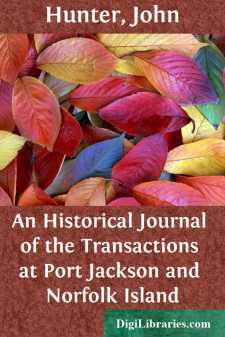Categories
- Antiques & Collectibles 13
- Architecture 36
- Art 48
- Bibles 22
- Biography & Autobiography 813
- Body, Mind & Spirit 142
- Business & Economics 28
- Children's Books 15
- Children's Fiction 12
- Computers 4
- Cooking 94
- Crafts & Hobbies 4
- Drama 346
- Education 46
- Family & Relationships 57
- Fiction 11828
- Games 19
- Gardening 17
- Health & Fitness 34
- History 1377
- House & Home 1
- Humor 147
- Juvenile Fiction 1873
- Juvenile Nonfiction 202
- Language Arts & Disciplines 88
- Law 16
- Literary Collections 686
- Literary Criticism 179
- Mathematics 13
- Medical 41
- Music 40
- Nature 179
- Non-Classifiable 1768
- Performing Arts 7
- Periodicals 1453
- Philosophy 64
- Photography 2
- Poetry 896
- Political Science 203
- Psychology 42
- Reference 154
- Religion 513
- Science 126
- Self-Help 84
- Social Science 81
- Sports & Recreation 34
- Study Aids 3
- Technology & Engineering 59
- Transportation 23
- Travel 463
- True Crime 29
An Historical Journal of the Transactions at Port Jackson and Norfolk Island
by: John Hunter
Categories:
Description:
Excerpt
Chapter I
October 1786 to September 1787
The ships destined for Botany-Bay rendezvous at the Mother-Bank.--Leave that place, and proceed on the voyage.--The convicts on board one of the transports attempt an insurrection.--Are timely discovered, and the ring-leaders punished.--Arrived at Santa Cruz.--Transactions there.--Attempt of a convict to escape.--Description of Laguna, and the adjacent country. Departure from Santa Cruz.--Pass Cape Frio.--Arrive at Rio Janeiro. Transactions there.--City of St. Sebastian described.--Table of Winds, Weather, &c.It being the intention of government to remove the inconvenience, which this country suffered, from the goals being so exceedingly crouded with criminals, who had been by the laws condemned to transportation, the east coast of New Holland was the place determined upon to form a settlement for this salutary purpose. The east coast of New Holland is that country, which was discovered and explored by Captain James Cook, in his first voyage round the world, and by him called New South Wales. Botany Bay, the only place he entered with the ship, which could be called a harbour, having been mentioned in the narrative of that voyage, as a convenient place for a settlement, was fixed upon by government for the intended design.
On the 25th of October, 1786, his Majesty's ship Sirius, lying in the dock at Deptford, was commissioned, and the command given to Arthur Phillip, Esq; the Supply armed tender was also put in commission, and Lieutenant Henry Lidgbird Ball was appointed to command her.
The Sirius was a ship of about 540 tons burthen, exceedingly well calculated for such a service; she mounted 20 guns, and had a spar deck over them, was of a round full built, and was all together a very capacious and convenient vessel. The Supply armed tender was a brig, and was one of the vessels which were employed in carrying naval stores from one of his Majesty's dock-yards to another; she was a very firm strong little vessel, very flat floored, and roomy, mounted eight guns, and had a deep waist, which I feared would be found a very great, if not a dangerous inconvenience in so low a vessel on so long a voyage. The Sirius's compliment was 160 men; that of the Supply, 55 men. These two ships were intended, after having performed the service of escorting the convicts to the place of their destination, to remain in the country to be employed as the governor might find necessary for the public service, until they should be relieved by other ships from England.
I had some reason, during the equipment of those ships, to think I might be employed upon this service, in some way or other; and as Captain Phillip was appointed governor of the new settlement, and of course had much business to transact in London, I frequently visited the Sirius, and frequently received his directions in any thing that related to the fitting her; she was out of the dock and the rigging in hand when I first went on board, On the 9th of December, the ship being ready to fall down the river, we slipped the moorings and sailed down to Long-Reach, where we took in the guns and ordnance stores....


